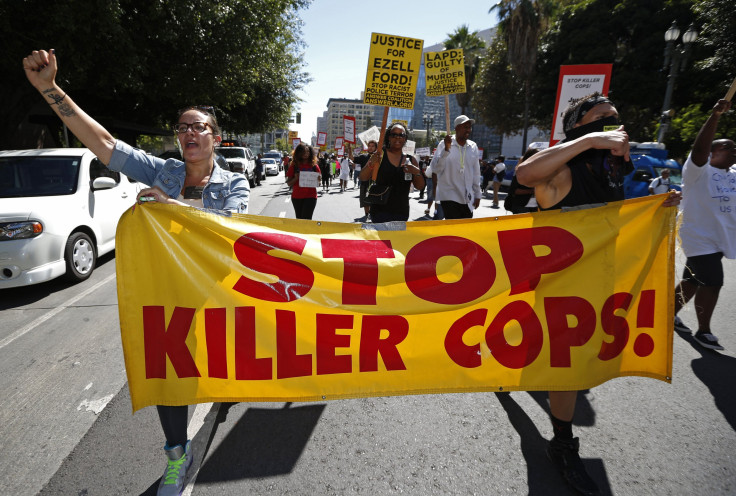Ezell Ford Shooting: LAPD Clears Officers Involved In Fatal Shooting Of Black Man, Sources Say

The Los Angeles Police Department (LAPD) and its independent watchdog have cleared two officers involved in the fatal shooting of a mentally ill black man last year, sources close to the investigation said late Friday, according to the Los Angeles Times. The death of Ezell Ford in August sparked protests over the use of excessive force by law enforcement.
Los Angeles police Chief Charlie Beck and investigators found evidence indicating that Ford had struggled for control of one officer's gun, supporting claims made by police after the shooting, two sources who spoke on the condition of anonymity reportedly said. Sources also reportedly said that tests conducted by the department found Ford’s DNA on one officer's gun.
However, the findings were only recommendations made to the Police Commission, which will determine next week whether the shooting of Ford was within department policy.
The 25-year-old unarmed Angelino was killed while he was walking near his home on Aug. 11, 2014. Officers Sharlton Wampler and Antonio Villegas, members of the LAPD's anti-gang unit, claimed that they approached Ford because they believed he was trying to discard narcotics, sources reportedly said. LAPD officials have not officially confirmed why the officers stopped Ford, who had been diagnosed with bipolar disorder and schizophrenia.
An autopsy report released last year revealed that Ford was shot three times, two of which would have been fatal.
Ford's parents, who believe the shooting was unjustified, have filed a federal civil rights lawsuit and a $75 million claim against the city, alleging that officers knew Ford had mental problems. In an interview with local station KTLA last year, Ford’s mother, Tritobia, said that her son was complying with officers’ instructions and was on the ground when they fired at him.
Ford’s death came just days after the fatal shooting of Michael Brown, the 18-year-old unarmed black teen, killed by officer Darren Wilson, in Ferguson, Missouri. Brown’s death sparked protests and riots across the United States as citizens demanded action to curb police violence.
© Copyright IBTimes 2024. All rights reserved.




















